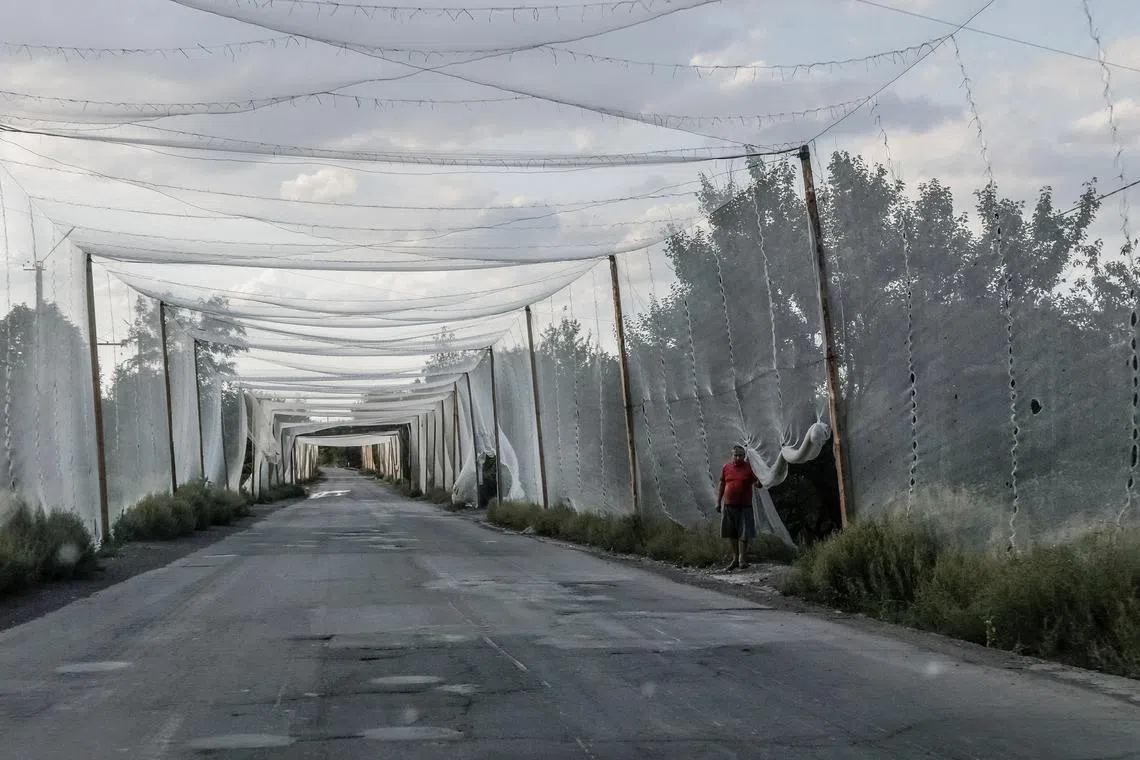Russia says it’s still seeking international recognition for occupied Ukraine
Sign up now: Get ST's newsletters delivered to your inbox

A town in the Donestk region, which Russia claims to have annexed.
REUTERS
MOSCOW – Russia is still seeking international recognition that parts of Ukraine annexed and occupied by its forces belong to Moscow as part of any peace deal, its foreign minister said in remarks published on Sept 3.
Ukraine has said it will never accept Russian control over any of its territory and has vowed to recover land seized by Moscow.
Russia claims to have annexed five Ukrainian regions – Donetsk, Lugansk, Kherson and Zaporizhzhia, as well as the Crimean peninsula, which it seized in 2014.
“In order for a durable peace, the new territorial realities that arose
Who gets control of land captured by Russia in its offensive is a key sticking point in stalled peace talks between the two sides.
Ukraine wants a ceasefire first before discussing territory, but Russia has refused to halt its offensive until a full deal is reached.
Turkey, which has hosted three rounds of direct Russia-Ukraine talks, said last week that Russian President Vladimir Putin had offered to freeze the front line in the southern Kherson and Zaporizhzhia regions if Ukraine completely gave up the Donetsk region.
Russia already has almost total control over the Lugansk region and controls around 80 per cent of the Donetsk region, AFP analysis of Institute for the Study of War data shows.
It has also captured large swathes of the Kherson and Zaporizhzhia regions, though Ukraine still controls the regional capitals.
Ukraine’s industrial east has been decimated by more than a decade of fighting that erupted when armed Russian-backed separatists began a push to break away from Kyiv following the country’s pro-European revolution in 2014. AFP


